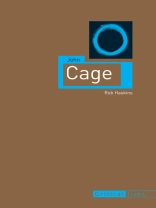American writer, composer, artist, and philosopher John Cage (1912–92) is best known for his experimental composition 4’33, ” a musical score in which the performer does not play an instrument during the duration of the piece. The purpose, Cage said, was for the audience to listen to the sounds of the environment around them while the piece was performed. Groundbreaking pieces such as 4’33”, as well as Sonatas and Interludes not only established Cage as a leading figure in the postwar avant-garde movement, but also cemented the enduring controversy surrounding his work.
In this new biography, Rob Haskins explores Cage’s radical approach to art and aesthetics and his belief that everyday life and art are one and the same. Scrutinizing Cage’s emphasis on chance over intention, which rejected traditional artistic methods and caused an uproar among his peers, Haskins elucidates the ideas that lay behind these pillars of Cage’s work. Haskins also demystifies the influence of Eastern cultures, particularly Zen Buddhism, on Cage, including his use of the Chinese textI Ching as his standard composition tool in all his work after 1951. Adding to our understanding of the art, music, and ideas of the twentieth century, this book provides an engaging look at a man who continues to challenge and inspire artists worldwide.
购买此电子书可免费获赠一本!
格式 EPUB ● 网页 224 ● ISBN 9781861899439 ● 出版者 Reaktion Books ● 发布时间 2012 ● 下载 3 时 ● 货币 EUR ● ID 5999026 ● 复制保护 Adobe DRM
需要具备DRM功能的电子书阅读器












